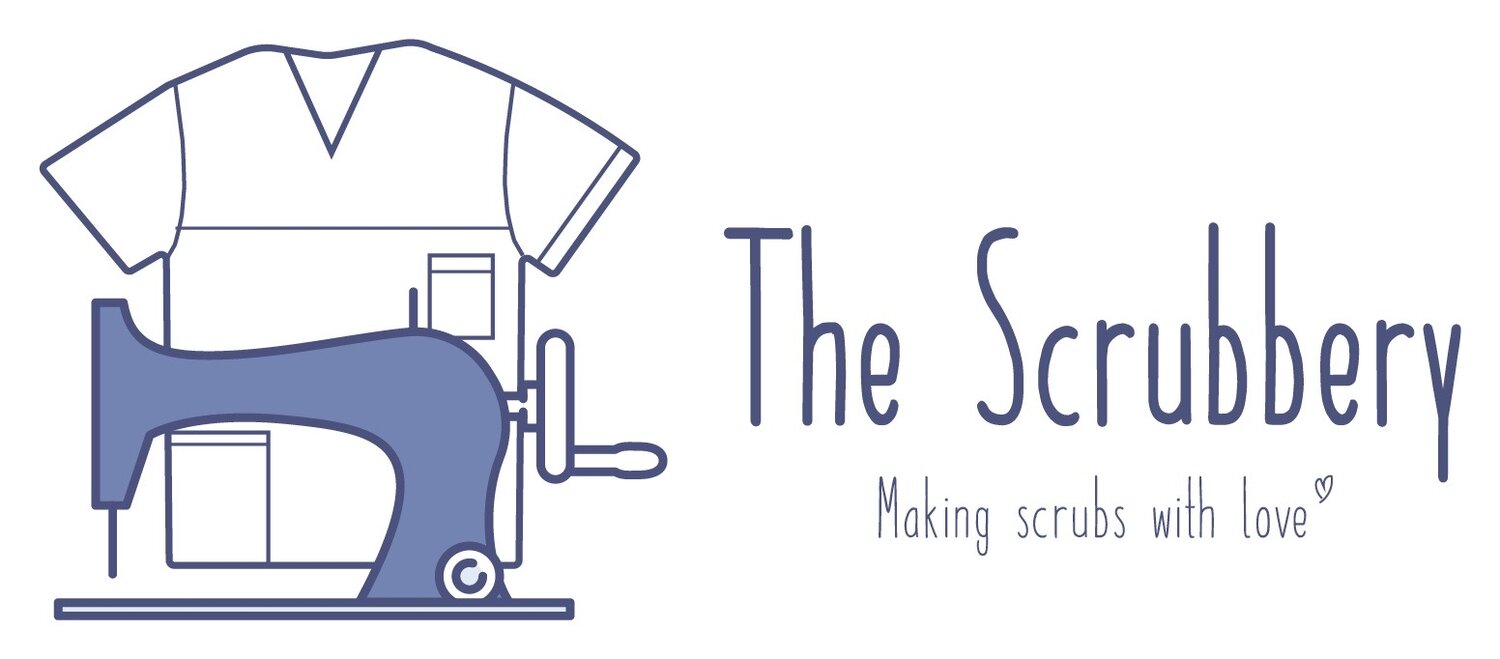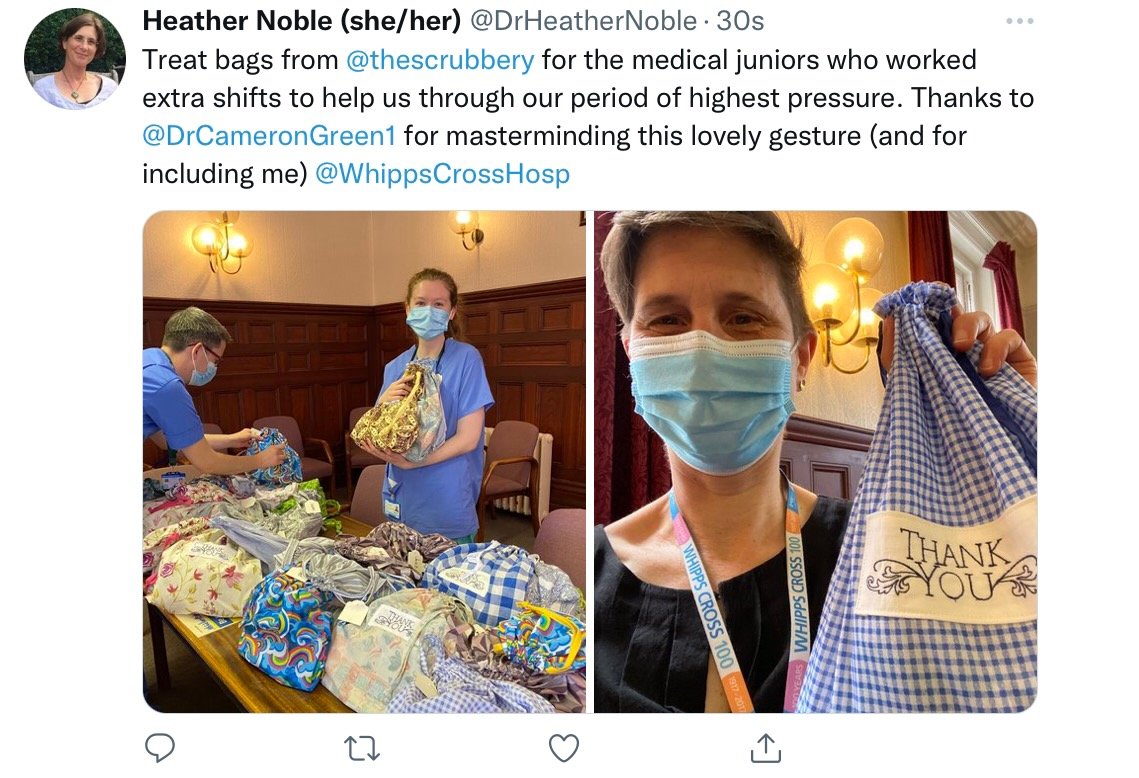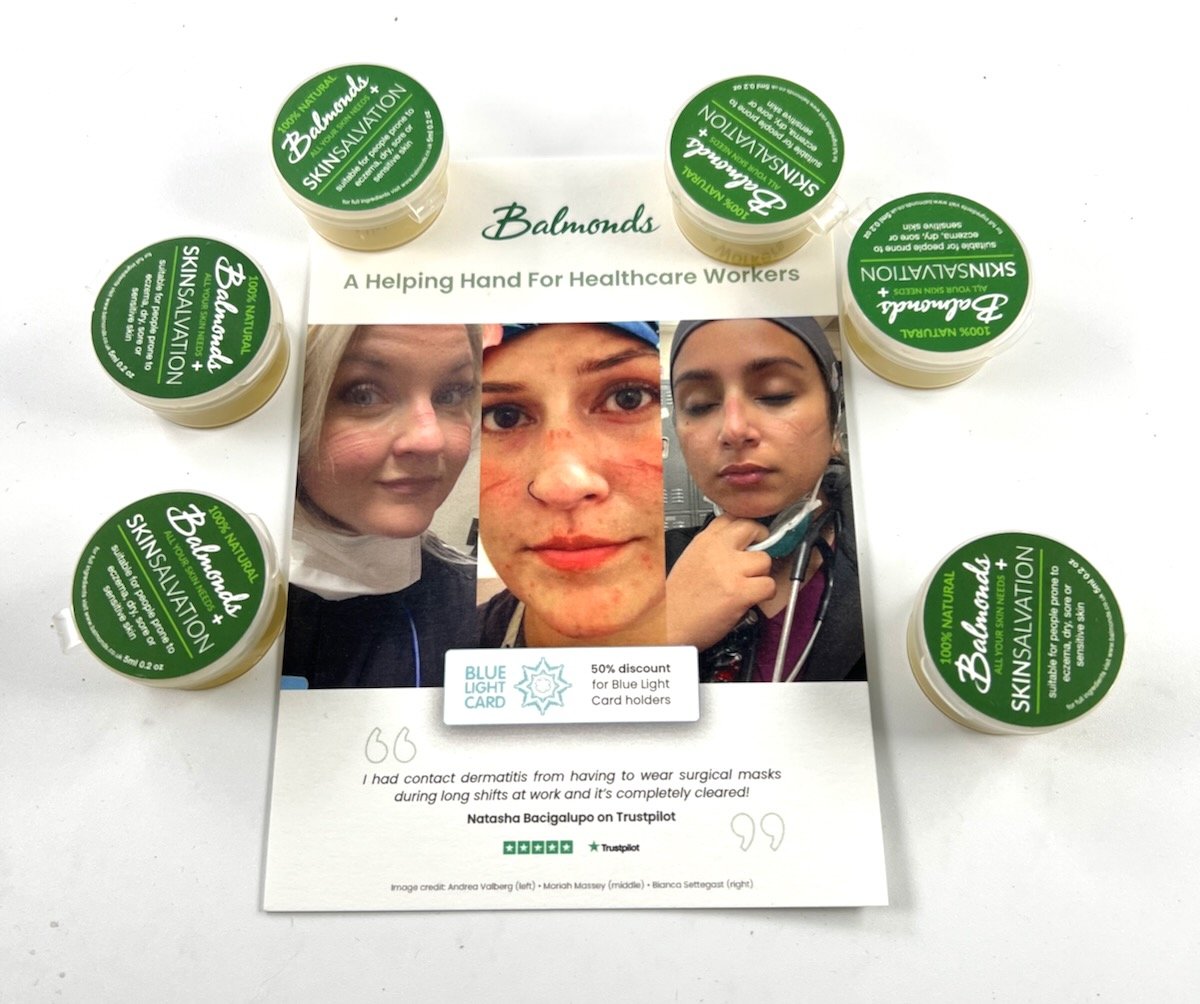February 2022
The Scrubbery News for February
The Scrubbery has been underway for two years now, and it is worth pausing to take a breath and reflect on what you have all achieved.
We have distributed over 45,500 items including 19,730 Scrubs, 11,196 Masks, 5,857 Scrub Hats, 4,344 Laundry Bags and 1,428 Wellbeing bags. This is a phenomenal figure and you should be very proud of such an outstanding team effort.
Although we can no longer use the cottage, we still happily have use of the garden. Most of you will be aware of this by now, but just in case you haven’t been in recently, we now have a spacious coffee area in the main building. It has been furnished with sofas, chairs and a small table for those wishing to have lunch or make a cup of coffee.
This is part of the Bank’s plans to change the use of the site. Sadly, this means that we will have to leave the Bank of England site altogether by the beginning of June. We really need your help to find new premises. In the meantime we would like to sincerely thank the Bank of England for providing premises for us for all of this time, it would not have been possible without their generous assistance.
Headlines for the month:
Rosie has just completed an extraordinarily busy week networking with the Prison Service, getting a massive order of bags and hats out the doors, sorting out the sewing machine servicing, calls with Fleur Anderson and the Civil Service, and liaising with St George’s University hospital laundry, procurement and finance departments and the sewing room.
More details on each of these below.
On 7th February Rosie and Fleur Anderson met with representatives from the NHS Supply Chain to further discuss the supply of scrubs to meet demand in hospitals, the quality of these scrubs and their fitness for purpose, a uniform review to help staff identification for members of the public and colleagues within the care system and the England-wide consultation on what staff would like to wear.
At our previous meeting it was agreed that the garments offered by the NHS Supply Chain not only needed to be fit for purpose but also what staff wished to wear. A national consultation was launched and at this meeting we wished to establish the outcomes and progress.
It was reported that there was a very positive outcome from this consultation. There was a significant response rate and clearly shows that there is not only an interest in improvement but also that staff care what they wear.
In our previous meeting Rosie had been particularly keen that a national approach to style and colour was adopted, as it has in Wales. Of the 51,000 responders who included allied health professionals, junior doctors, consultants, nurses, midwives, health care scientists and pharmacists, 83% were in favour of a national approach and that this should, where possible, be adopted by everyone. This consultation was paralleled by one organised by Nursing Standards and another by the Royal College of Midwives who had similar results from their 10,000 responses.
NHS England invited suppliers to take part in a study. They were given a loose design brief to produce samples of a smart tailored scrub set, a tunic and trouser set and standard scrub set akin to those worn in theatre for example. These sample garments are at the testing stage having been rolled out across 10 Trusts including mental health/health in the community workers as well as those in a hospital setting across England for wearer feedback. They are also being tested at a laboratory for colour fastness, rub testing, ease of care and so on. It is hoped that feedback will have been collated by Autumn.
Rosie raised points against the gramme weight of the cloth to be used and the fibre composition, as well as style, for particular focus on sizing and suggesting a minimum of three trouser lengths to be considered, and that scrubs be separate parts rather than shipped as a set so that staff could choose their best fitting option at point of collection, that this also helped with workers self-esteem.
Rosie also noted that the majority of people working in hospitals are female and the need to move away from unisex i.e. male-sized scrubs. The Supply Chain agreed and said that they were also considering ethnic minorities and their needs.
Rosie raised the issue of where garments would be manufactured and urged NHS Supply Chain to consider manufacture in the UK. The Supply Chain replied that it was also a matter of the cloth, but Rosie responded that this is something the Supply Chain could manufacture to specification and that suppliers could draw down cloth from them as they know how many people they have in each echelon of work and could easily calculate the amount of cloth needed in each colour. This gives huge economies from scale. Supply chain mapping is part of the assessment process as is sustainability and social value criteria. Rosie raised the possibility of NHS Supply Chain working with the prison service to manufacture and Fleur the factories in Leicester who are looking for work.
Fleur and Rosie were optimistic with the progress reported and came away feeling encouraged that our concerns had been heard and acted upon. Fleur also particularly asked that Rosie be included more in the consultation process going forward.
Grateful thanks are due to Fleur for her support in this line of enquiry and for raising follow up from the meeting as a parliamentary question, ensuring the answers will be publicly noted.
Last week Rosie met with the team at St George’s University Hospital to explore the possibilities of them working directly with HMP Wandsworth and other local prisons to manufacture their scrubs. Rosie wanted to gauge enthusiasm and to get expressions of interest. We sat down with procurement, laundry services, the sewing room, finance, and management to consider possibilities and where there was a suitable demand that the prison service might be able to realistically meet.
Obviously, a hospital the size of St. George’s has a huge number of staff, approximately 9,000 in total, but not all of them wear scrubs and the majority of general, rather than smart scrubs, are provided by the laundry service. At this stage we are information gathering, but the long-term hope is that there will be a niche manufacture that the prison service may be able to fill which will benefit on many levels. Ideally, we would like to set up trials, tweaking as necessary and then to roll out the process nationally using this case study so that prisoners all over the country can be suitably trained and work in partnership with our hospitals.
We delivered another 700 scrub hats whilst on site, made from our very cheerful upcycled fabric and helping St George’s move towards net zero plastic in their operating theatres. Using this fabric saves it going into landfill and for every thousand hats we deliver we also save another 52,000 to 60,000 disposable hats following the same route. Thanks to everyone for helping to make these, especially Pam, Hilary, Carole, Jude and Rosie for sewing them.
Rosie additionally visited HMP Wandsworth by kind courtesy of the Mayor of Wandsworth. Councillor Richard Field had organised a meeting with the Governor and invited Rosie to come along. It was an incredibly positive meeting and the Governor was most accommodating, listening to Rosie’s proposal to involve the prison service in sewing scrubs or other textile items for local hospitals. This would involve training up inmates but equipping them with life skills and potentially future employment either in a factory or as an outworker.
The Governor talked about HMP Wandsworth and how it had a reasonably swift churn of inmates as it was predominantly a remand prison but suggested that they could work in conjunction with Highdown or Brixton to increase and develop the levels of training going forward. The prison service is constantly exploring ways to employ people on release, and this could prove an ideal way to do this. Although vocational training is given within the facilities such as training to be a plumber or electrician, once incarcerated a person is not allowed to work in people’s homes, whereas if training has been given in sewing, and he or she can be furnished with a sewing machine, they could work from home or in a factory, or perhaps they could be trained as sewing machine engineers!?
The Governor was very pleased to listen and to back the proposed initiative saying that he understood why the mayor wanted a face-to-face visit as it was impossible not to fall in with Rosie’s infectious enthusiasm. We are taking it to the next level with the industry team coming to visit the hub next week. Rosie thought that when they saw how much we had managed to produce with next to no facilities that they would go back to their state-of-the-art equipment with hearts full of possibility thinking! Fingers crossed for a great outcome although still early days.
Special thanks are due to the Mayor of Wandsworth for letting Rosie accompany him to meet the Governor, and to Governor Graham Barrett for entertaining this and for the privilege of visiting the prison and the museum afterwards. It was also very encouraging to be present at the staff awards and to hear of how other people are helping inmates who have had an especially difficult time during the pandemic, not least when the boiler broke and there was no heating or hot water.
The great sewing machine service parade
Over the last three weeks we have had Joseph Zudovas, a sewing machine engineer, in to the hub to service our in-house sewing machines and those of the team. The initiative started because one of our team was having problems with her machine and although Rosie had given her Joseph’s details life had got in the way of getting her loved machine working again so Rosie asked if she would like help and then thought that she could assist everyone.
It is easy to park at the Bank of England Sports Ground, no worrying about whether you have the right parking app on your phone or whether your arms would be the same length after you had lugged your machine down the road and around a few corners to make it to the service centre. Then there is always the question of whether you can trust the engineer to do a good job or indeed any kind of job at all. Joseph was tried and trusted for Rosie and also happy to give us a generous discount on account of the charitable work that we have all been doing.
Joseph trained for 5 years at university specifically to be a sewing machine engineer and has been working in the industry for over 38 years – he has even serviced sewing machines at Buckingham Palace, Windsor Castle, UK Parliament, Westminster Abbey, and the Royal Air Force and has regular clients in the fashion industry, university colleges and schools. He speaks Russian, Lithuanian, Polish and English (just in case you need this!) and will service any brand of sewing machine so he seemed like just the person for the job.
Many people asked Rosie if it was worth servicing or repairing their old sewing machine when they could buy a new sewing machine cheaply with up to a 25-year guarantee? We put the question to Joseph who said “Well, “old is gold”. If your sewing machine has been reliable for 20 years or more, then trust me, when fixed it will work even longer. Many of the cheaper plastic sewing machines are like single use cameras – you stitch a couple of stitches but once there are problems you just throw them away regardless of any ‘lasting guarantee’. This type of sewing machine is made for selling, not for sewing.”
Over the three days that Joseph joined us we lined up all manner of marvellous machines old and new, mechanical, (hand and treadle) and electric and he quietly worked through them all one after another after another as we had them lined up on the tables. We estimate that he revitalised nearly 50 machines of all makes and vintages and they are now all purring away happy in their homes. Someone asked us how often you should service your sewing machine – every 2 years whether you are using it much or not as it needs to be regularly oiled and cleaned and kept in mechanical alignment. So, one of our team last had her machine serviced 21 years ago – ssh!, Joseph worked it out from the service sticker on the machine, we had a good chuckle and she promised not to leave it quite so long next time.
If you missed out on the service opportunity and would like to have your machine included, please get in touch and we will see if we have enough machines to schedule another day – it is the least that we can do to thank you for all the sewing that you have been doing for us. If you did have your machine serviced and would like to leave a review for Joseph, this is the link. Please can we encourage you to do this, it will make a difference.
Milestones:
Whipps Cross Hospital collected a large donation of well being bags from us, and they were taken to their boardroom with the Medical Director personally thanking all the recipients by handing out each bag – a lovely gesture.
A massive delivery was made to Newham Hospital of scrubs and bags – it was a real “all hands on deck” exercise to get all the components sorted in time from writing out all the thank you cards, to sorting the contents of the bags, to steaming scarves – never mind the cutting sewing and threading of the actual bags – Herculean effort by all those involved – thank you doesn’t seem enough but it will make such a difference to the lucky recipients.
We have also been making hats for front line staff in Zimbabwe – designing, cutting, and sewing a new style, but always using recycled fabric.
Rosie personally delivered another 700 scrub hats to St George’s – bringing it to an amazing total of 3,850 hats delivered to that one hospital. Just to remind you they wish to reduce their carbon footprint and part of the initiative is to reduce the use of disposable wear, especially in theatre – our hats can be washed at least 50 times before they might need replacing – so just that one small change will contribute massively to their goals.
Linus Project:
Following on from Brigid and Hilary’s fabulous quilting endeavours, there was a groundswell of interest in the subject. Rosie has come up with the idea of holding several day events at the Scrubbery for all who want to learn more. These days will focus on specific topics – cutting or assembling. If you are interested and want to take part, please ping Rosie to let her know, and confirm your place.
Karen Nussbaum will be leading the sessions as she is a quilting superhero and has already been volunteering with the Linus Project, which is a charity dedicated to making comforters for babies and children.
They aim to provide a sense of security and comfort to sick and traumatised babies, children and teenagers through the provision of new homemade patchwork quilts and knitted blankets and give volunteers across the UK the opportunity to contribute to their local community.
Tools for Self-Reliance:
This is a charity that Rosie has found, who can and will repurpose old sewing machines. This charity sends these machines out to Africa, and they are donated to local communities and help train people with new skills to enable them to earn some income. Any machines that can’t be used in Africa, are sold here and any money made contributes to the cost of shipping. We may well be able to supply them with some sewing machines.
Thank you
We had a lovely card thanking all contributors for all the wonderful gifts and donations we had passed over to Little Village.
We also had a wonderful message back from a doctor who had asked for wellbeing bags and had intended to come in and collect them, however he succumbed to a bout of Covid and couldn’t visit. He was desperate to get his staff the bags and he and Rosie made it happen. His staff were delighted...
Balmonds have agreed to donate another 500 sample pots of their lovely face salve for our wellbeing bags. We are so grateful to them and to Lucy for organising this.








